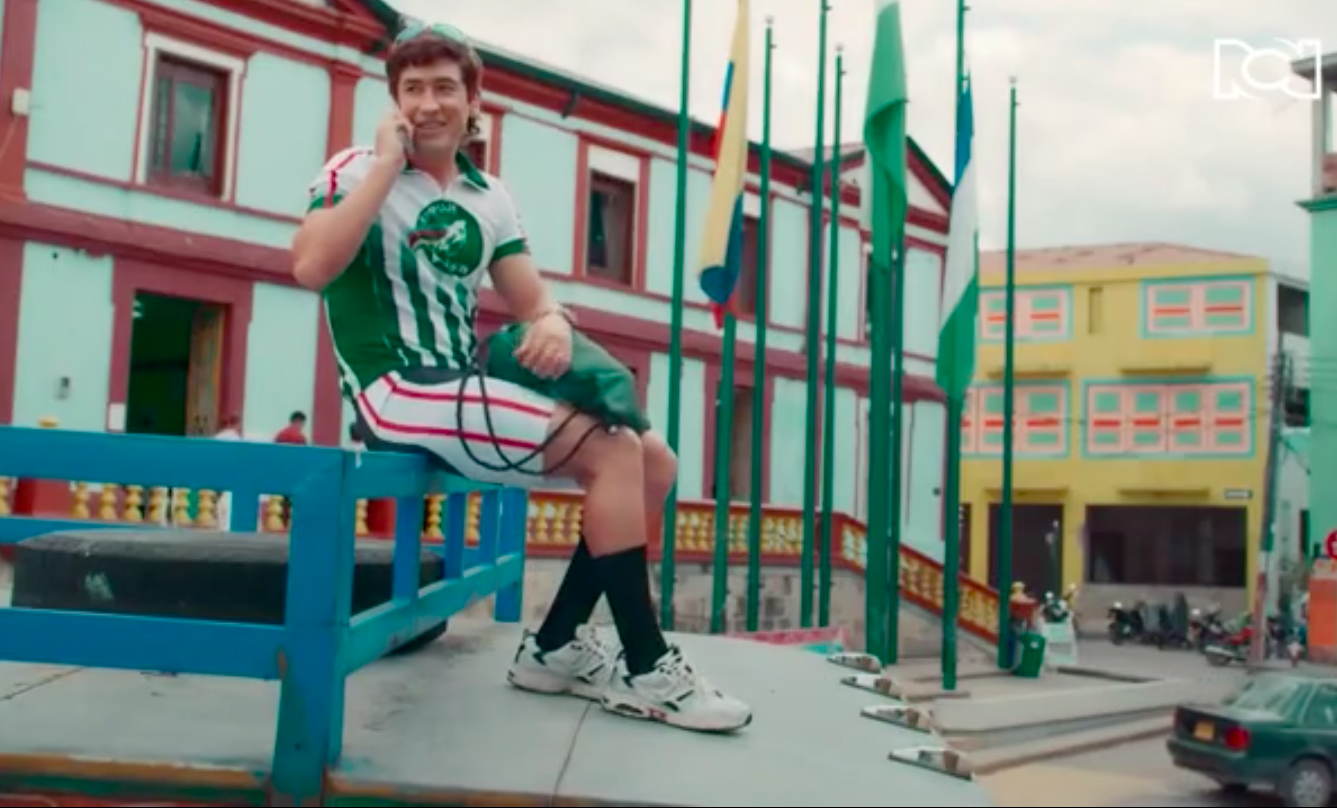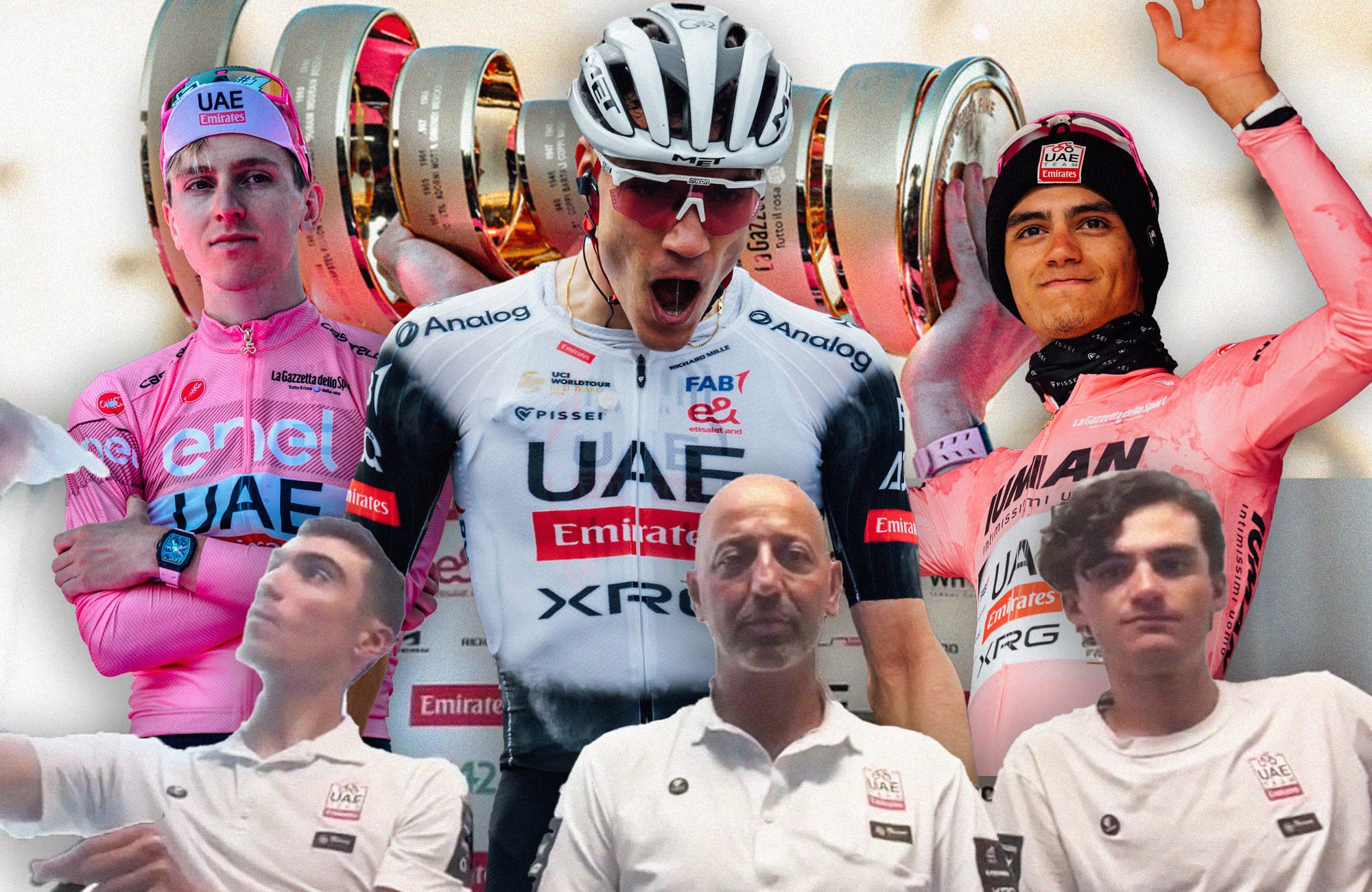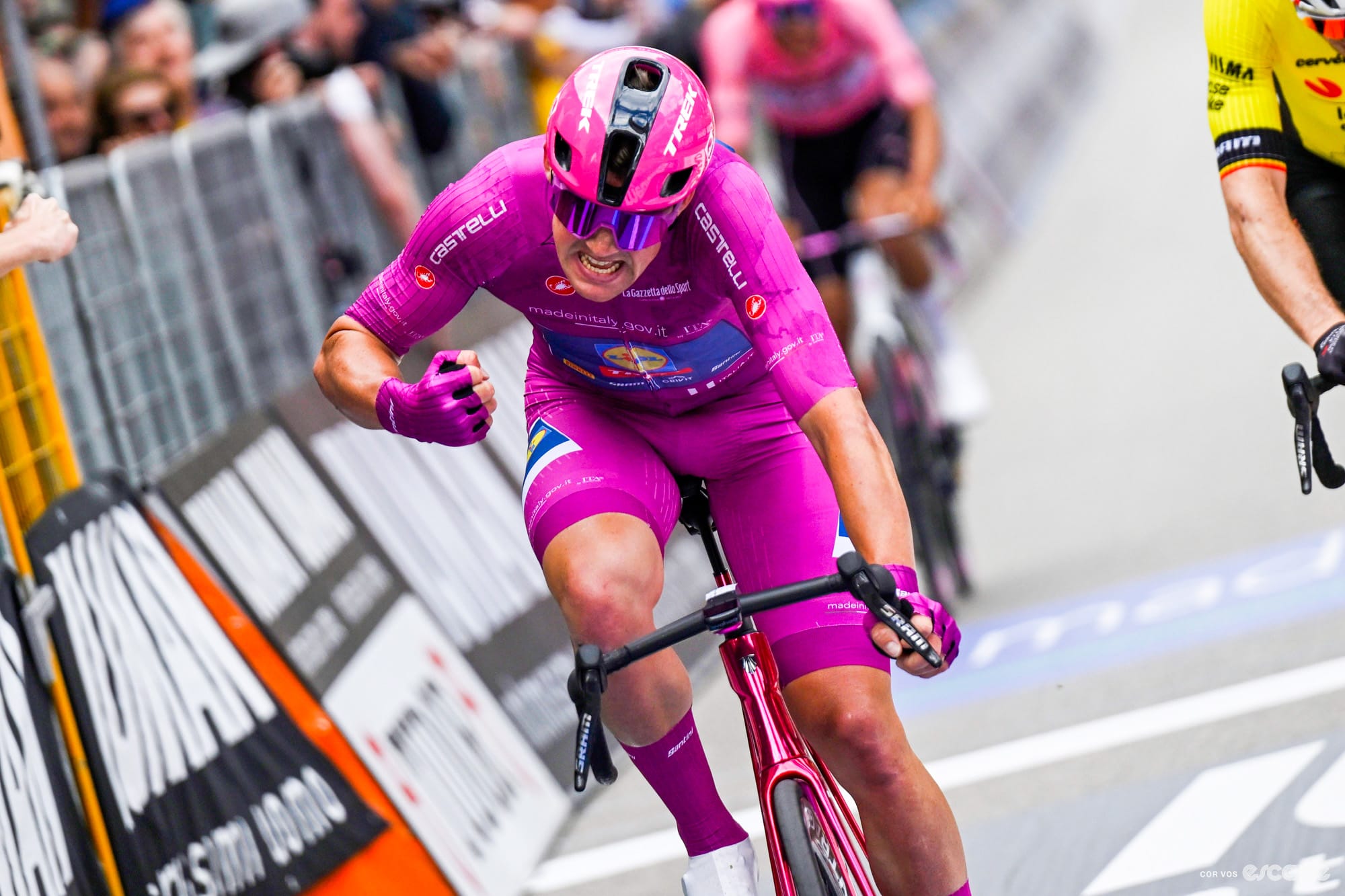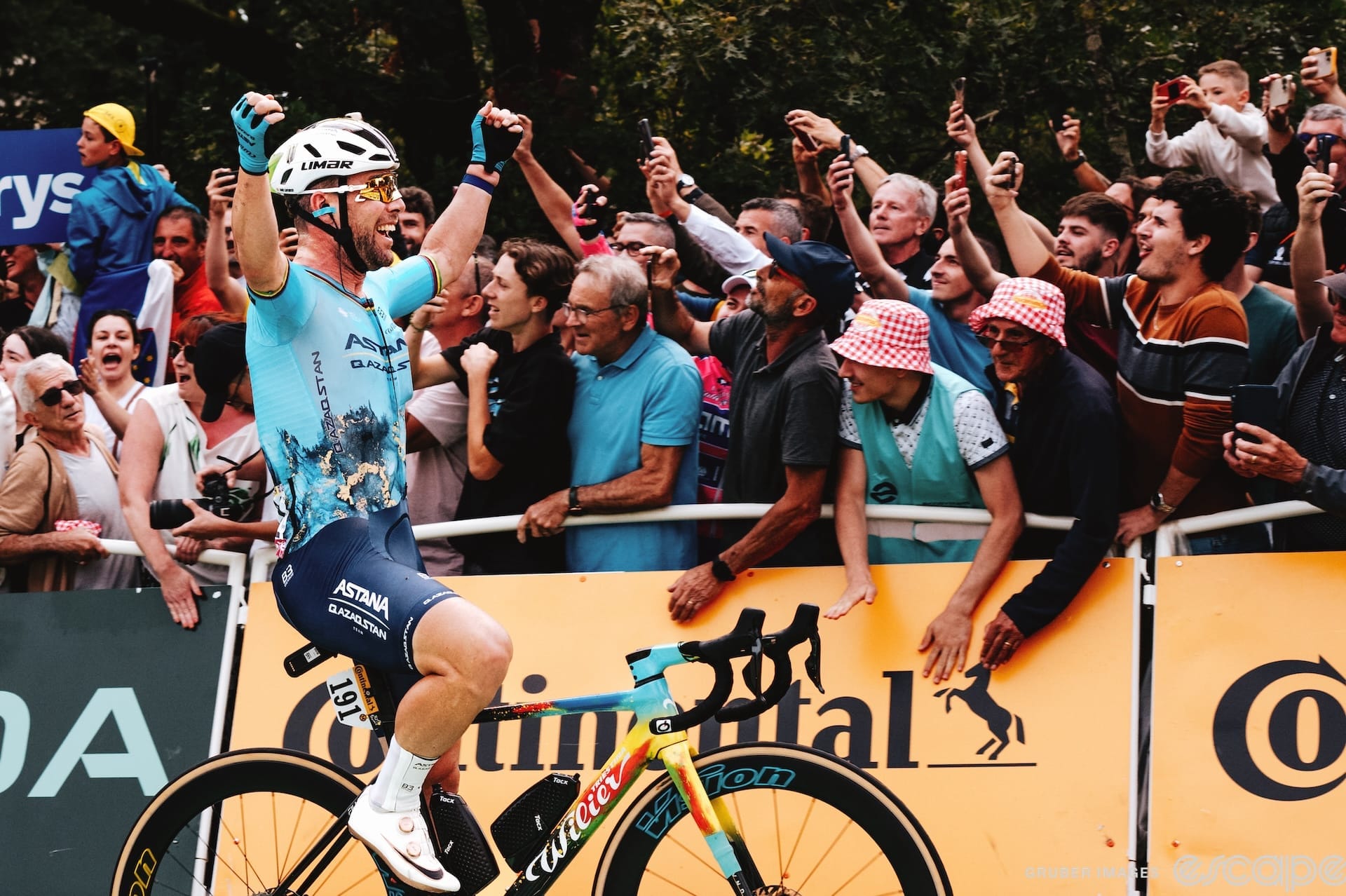If you've been waiting patiently for the life of Rigoberto Urán to be made into a television series, I have good news for you. Your wait is over. RIGO is here.
That's right, Colombian network RCN has produced a telenovela adapted from the book "Rigo" by Andrés López, a biography that chronicles the rise of the eponymous cycling star from his roots in the Colombian mountain town of Urrao to the heights of Grand Tour podiums.
Those who follow the EF Education-EasyPost racer on social media will have seen him promoting the show and palling around with some of its cast, including the star who plays the title role, Juan Pablo Urrego (shown here wearing a Volcom hat at a viewing session with Wout van Aert).
As of publication time, nearly 30 episodes have hit the airwaves in Colombia, and with each clocking in at some 45 minutes, that is a lot of content. Naturally, we had to see what the show was all about, so that we could share this critical information with you, our valued readers.
As one of the handful of Spanish speakers on staff at Escape Collective, I therefore set out this week to find and watch the first episode (and maybe more). After doing some legwork familiar to any fan of cycling who wants to watch a race not usually available in their locale, I was able to find a stream, and I thus embarked on my journey.
What I found in watching the first episode was roughly in line with my expectations and, crucially, just entertaining enough (for a variety of reasons) that I am going to watch more …
A Colombian telenovela
Before we go any further, here's what you need to know. RIGO is a Spanish-language program and if episodes with English subtitles exist, I haven't seen them yet. Beyond that, it is a program about people from the Antioquia region (whose capital is Medellín) and for anyone not from that region, the accent can be very challenging, in contrast to what you might hear from, say, Bogotá's Egan Bernal or Boyacá's Nairo Quintana. I imagine my viewing experience is similar to that of someone from Tennessee trying to watch a show set in Liverpool, or vice versa. In short, I did my best!
The other key piece of context is a knowledge of the format. You may know something about telenovelas, but that word has some nuance. At its heart, a telenovela is simply a format of television show in Latin America serialized across many episodes (usually contained in a single season). Most are serial dramas, and, especially in Mexico, many of the biggest hits go beyond "drama" into extreme melodrama, which has led to them being known in the U.S. as Spanish soap operas – but not all telenovelas are soap operas. In fact, many are pretty similar to any other serialized drama, especially outside of Mexico.
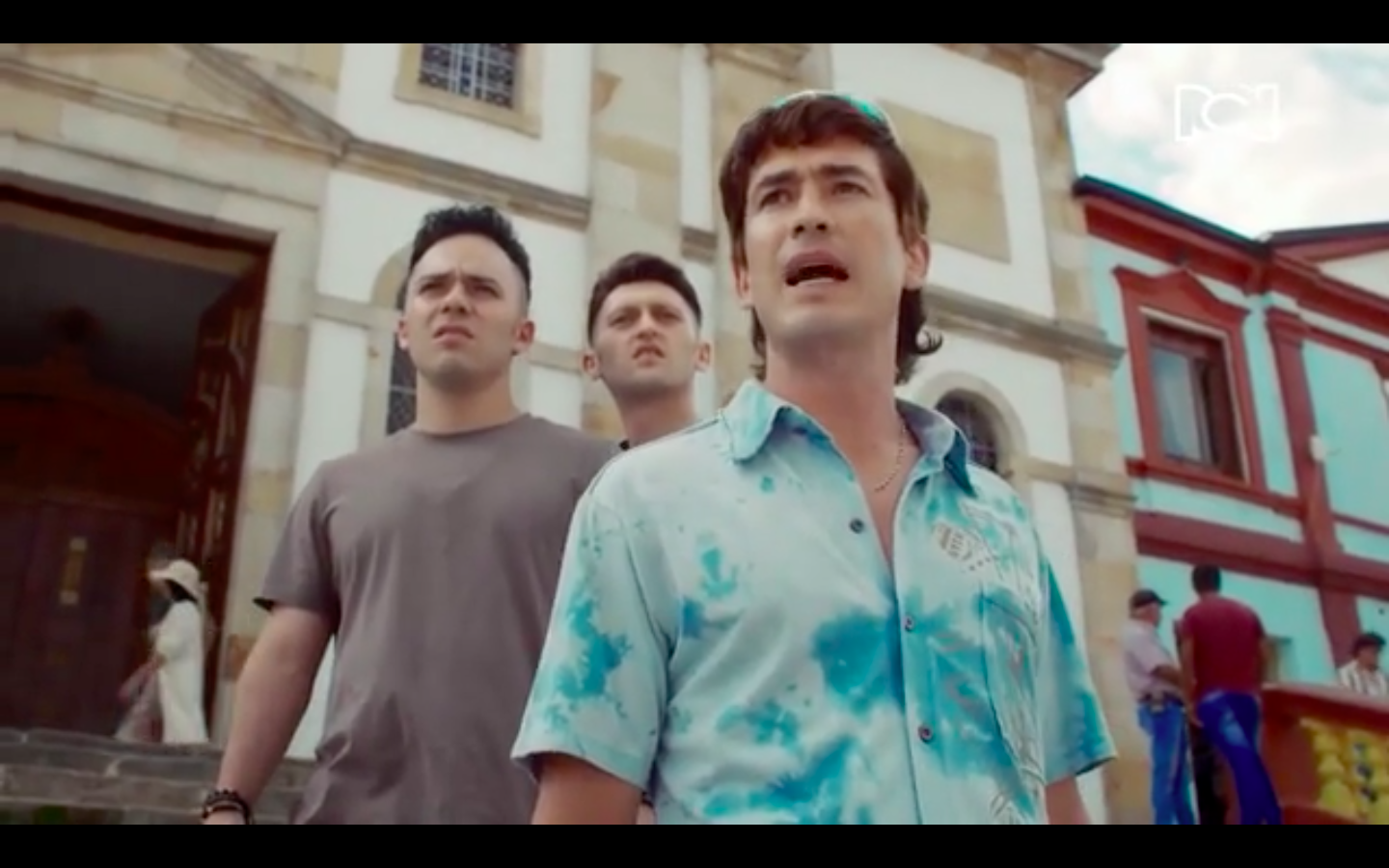
When I was learning Spanish, I watched most or all of three different telenovelas. One was very much a soap opera from Mexico, but the other two were Colombian crime dramas. Melodrama is absolutely present even in those that you wouldn't call soap operas, but plenty of episodes of American shows like Lost and Game of Thrones cross the line into being melodramatic, so that's not really unique to the format.
Right then, onto RIGO, which features its fair share of melodrama and camp, but is not a soap opera. At the end of the day, it's a serial drama about a likable young man who is trying to become a pro athlete while navigating challenges in his family life, including tragically losing his father at a young age, which did really happen. The protagonist of the show also spends plenty of time navigating his love life. In other words, it's a sports drama like so many other sports dramas, while maybe being just a bit more oversimplified and campy.
RIGO: Capítulo 1
Our story opens on a young man riding his bike in the mountains in 2005 when a colorful bus pulls up behind him and starts honking, which is something that many of us cyclists are familiar with. Rider and driver shout some angry words at each other, and the driver stops the bus and grabs a machete and starts swinging it at the cyclist – but fret not, viewer.
It's all just an elaborate joke.
After a few tense moments, the two break into laughter and embrace. Plucky young Rigoberto Urán and his loving and lovable uncle, the bus driver, are just having some fun. Our hero jumps into the bus to continue his journey home, and away we go on our first episode of RIGO.
Within the first few moments of the show, we establish that the protagonist, young Rigo, is a talented cyclist who has won some local races for up-and-comers and is now just trying to make the next step to a European team. The challenges he faces are many, but he has the tools to overcome these challenges – most notably, his winning smile, quick wit, and never-say-die attitude. Juan Pablo Urrego's Rigo is nothing if not charming as heck, and he is constantly working that charm on everyone around him, including love interest Michelle Durango, played by Ana María Estupiñán.
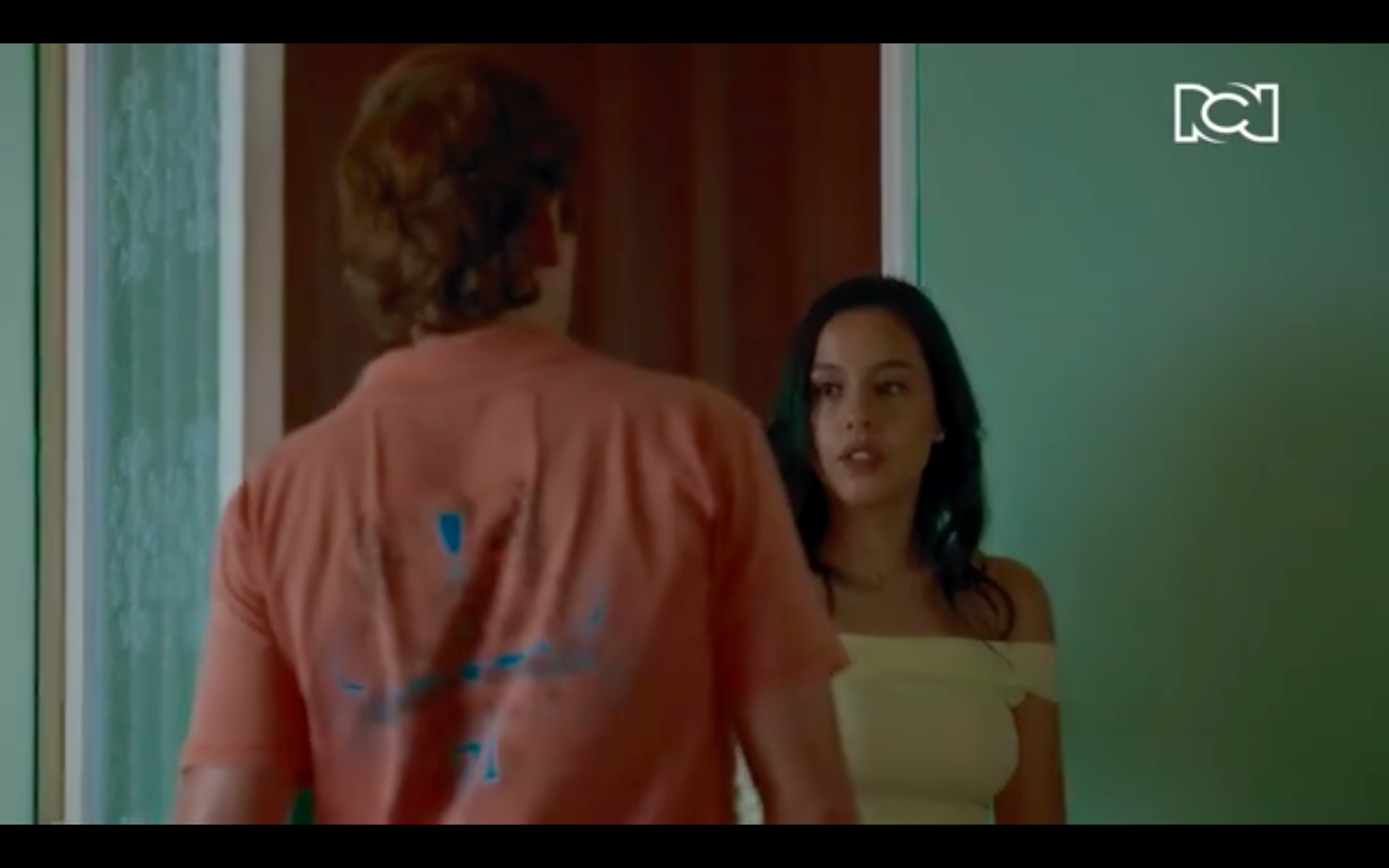
Those who follow real-life Urán's Instagram will know that he and real-life partner Michelle Durango are today the parents of a two-year-old daughter, but back in 2005, we are getting the origin story. As with any good sports drama and any good telenovela, the love story is absolutely essential here, so much that cycling kind of takes a back seat.
In fact, the show features what I'm pretty sure is an original tune about a 'montañero' (literally, a guy from the mountains – essentially a country boy) who falls in love with a woman named Michelle. "There is nothing more sincero than the love of a montañero, Michelle," croons our singer. I think it's catchy.
Enter the villain
After we meet our plucky protagonist and his love interest, the confident and savvy daughter of a successful Medellín businessman, we get an antagonist, and boy howdy is he a good one. Or a bad one. I'm not sure how to describe him, but he's ... something.
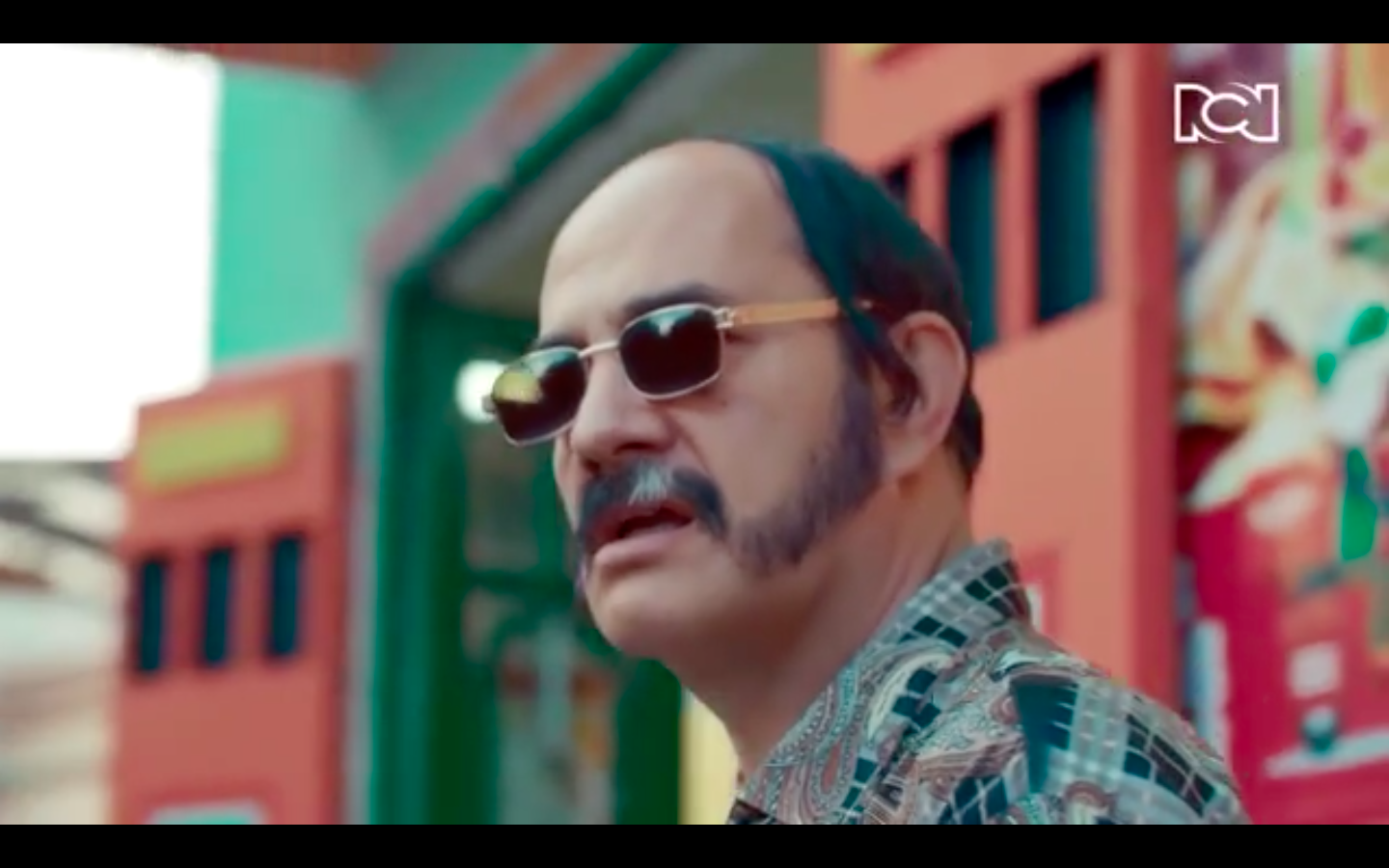
As it turns out, Rigoberto Urán's mother is two months behind on the mortgage payment and it is a struggle to come up with the funds. The looming debt issue presents the show with a chance to introduce us to Evaristo, who is the best thing about episode one if you're willing to indulge in some camp. Sporting a memorable haircut and facial hair combo, Evaristo just can't wait to evict the Uráns so that he can put his own business in the space. He is smarmy and has an annoying voice that the characters in the show make fun of, but he's also kind of funny and clever, and he's so easily detestable, it's enjoyable.
He also has a lawyer who follows him around but doesn't help Evaristo enough in his dastardly schemes, at least not in the opinion of Evaristo, who berates the lawyer for being useless despite billing hourly.
Rigo's big break
Young Rigo obviously cares deeply about his mother, and in addition to trying to find a way to stave off the debt collectors, he is also busy trying to get her to stop smoking, a habit she tries to hide. And amid all of these challenges, he is of course also trying to make that next step in his cycling career, and we finally get a glimpse of that when the narrative jumps across the Atlantic to show us the Italian manager of a cycling squad who is disappointed with his current roster and their boring style of riding.
Fortunately, he has heard about Rigoberto Urán, and he's trying to get ahold of him.
The real Urán made his Pro Conti debut at 19 years old with Ireland-based, Italian-run Tenax-Salmilano back in 2006 (that wasn't his first pro contract, by the way – he got that at just 16, with the Medellin-based team Orgullo Paisa, and his mom signed the deal). It seems like the show decided to amalgamate various Italian bike racing figures into the character of "Giuseppe Alessandro," just one of several examples that this show is a dramatization made to entertain an audience that may or may not be interested in cycling, and thus probably shouldn't be trusted as gospel for the actual events of Urán's life.
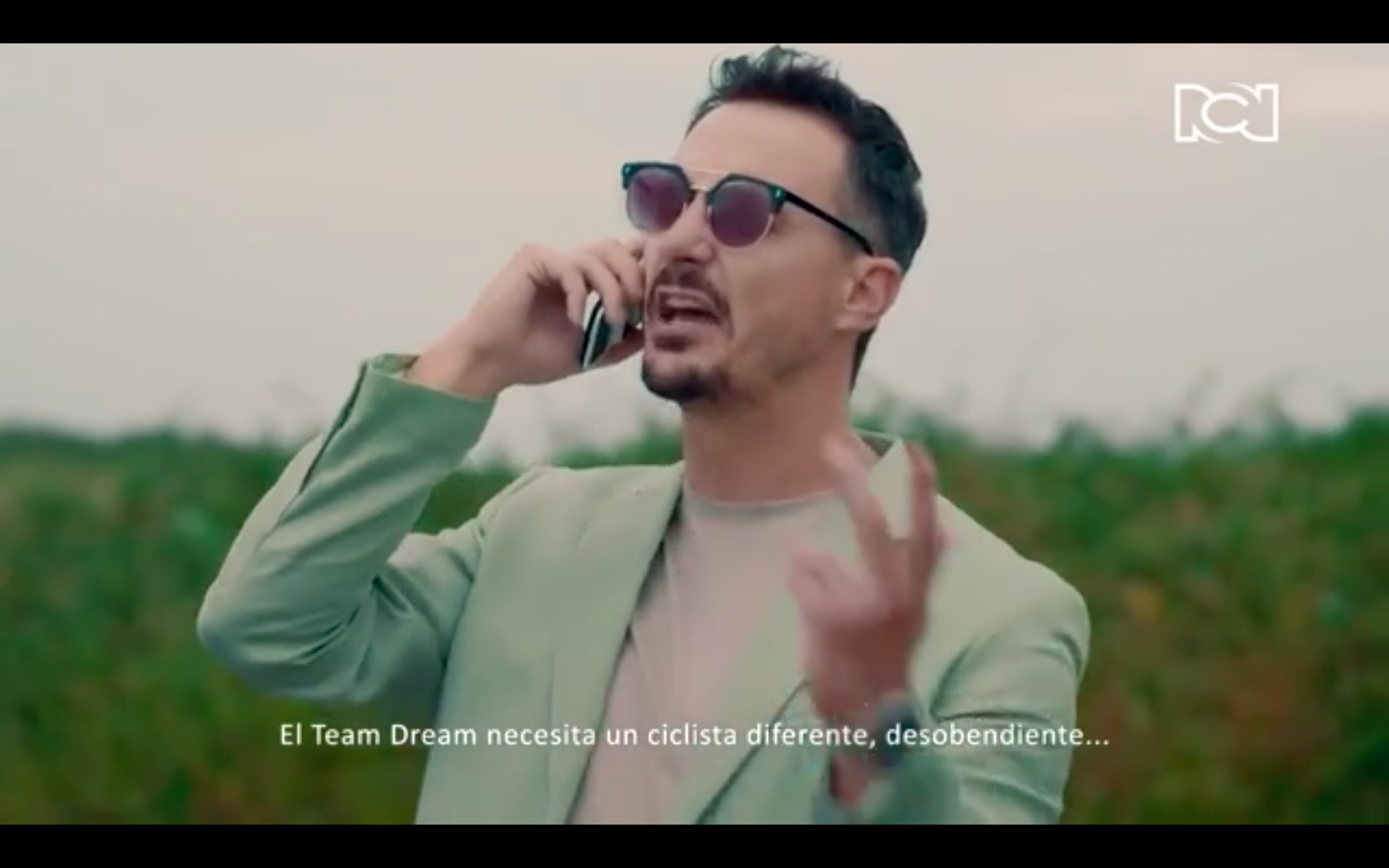
In the show, the well-dressed Italian manager ultimately offers Urán a contract for the massive (relative to his current circumstances) sum of €25,000. The phone call scene gives us another chance to see some of the challenges Urán has to face. The teenager has the gift of gab in his native language, but he doesn't speak Italian and has a very hard time understanding English too. In my experiences with the real-life Urán, interviews were only done in Spanish until relatively recently when he joined EF, so this checks out.
Nonetheless, he gets a contract offer, setting the scene for the continuation of the cycling narrative even as the show dives into other storylines, continuing to follow Urán's romantic escapades as he does his best to woo Michelle and also including some flashbacks to a few years prior.
These give us a glimpse at the young Urán's loving father, Rigoberto Sr., who appears to be a bookmaker trying to branch out as a restaurateur, investing in the property whose mortgage will later become a headache for his wife and son. The circumstances surrounding Rigoberto Sr.'s death are not addressed in the first episode, setting up a future stretch of episodes where we will see more in frequent flashbacks.
Yes, it's campy, and I loved it
RIGO's early episodes show us a young Rigoberto Urán on the cusp of his pro career navigating challenges at home and also looking for love, with several flashbacks to things that happened in the run-up to 2005. The pace is snappy and dialogue (sometimes a bit heavy handed) reigns supreme. This is not a moody European crime drama with five-minute atmospheric shots lacking any conversation between characters. It is a telenovela sports drama, and that means things are constantly happening on screen to keep us interested.
After one episode, which threw some more challenges at Rigo in the closing few minutes to give viewers plenty of reasons to tune in for the second chapter, I was charmed enough by the protagonist and the show – and mesmerized by the catchy theme song and the villain's bad hair cut – to want to keep watching into episode two.
To put it another way, this isn't The Wire, and you have to accept the camp and over-the-topness inherent to the format here if you want to enjoy it, but I was at least willing enough to do that for the first two episodes that I'll probably watch more. At the very least, it's good practice for my language skills just in case I ever travel to that part of Colombia!
Did we do a good job with this story?

